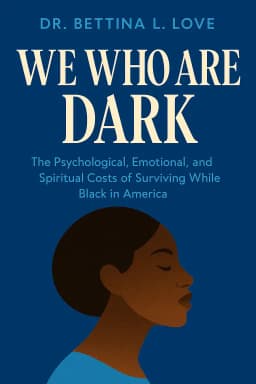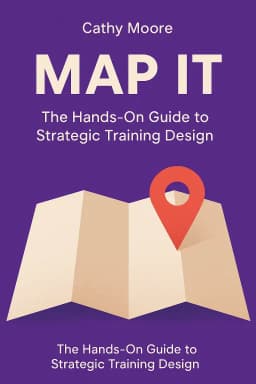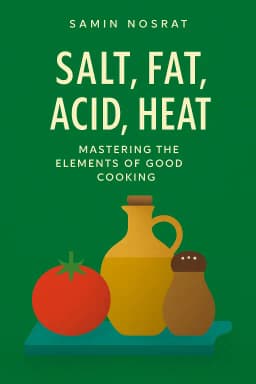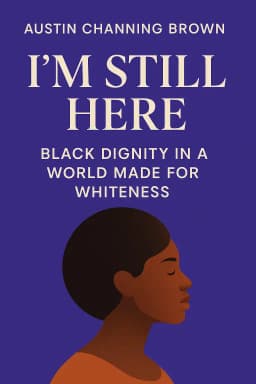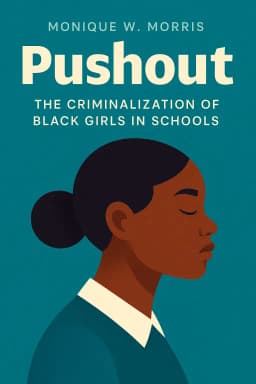
The Diploma Deception
Why the Education System Is a Waste of Time and Money
Golden Hook & Introduction
SECTION
Laura: Sophia, pop quiz. What percentage of what you learned in high school history or biology do you think you actually use today? Be honest. Sophia: Oh, that's an easy one. Maybe... one percent? If I'm being generous. I remember memorizing the parts of a cell and the dates of a dozen different treaties, and I can confidently say that information has never once come up in a meeting. Laura: Exactly. I think most of us feel that way. Now, what if I told you that despite that, every single year of school you complete adds, on average, about 10% to your lifetime income? Sophia: Wait, really? Ten percent per year? That seems... completely contradictory. If the knowledge is useless, why are we getting paid for it? Laura: That is the billion-dollar puzzle we are cracking today. This whole paradox is the focus of Bryan Caplan's book, The Case Against Education. Sophia: Which has a pretty provocative subtitle, right? 'Why the Education System Is a Waste of Time and Money.' That's a bold claim. Laura: It is, and it's coming from a PhD economist at George Mason University. Caplan is known for taking these libertarian, evidence-based swings at sacred cows, and this book definitely caused a stir. It got very polarizing reviews, with some calling it brilliant and others finding it deeply cynical. Sophia: Okay, so he's not just a random ranter. He's an economist with a theory. Let's get into it. Where does he even start to argue that education is a waste? Because on paper, it looks like the best investment anyone can make.
The Great Disconnect: Useless Knowledge, Handsome Rewards
SECTION
Laura: He starts exactly where we did—with the massive disconnect between what we learn and what we do. He calls it the "ubiquity of useless education." He points to his own high school's graduation requirements, which are pretty standard across the country: four years of English, multiple years of math like algebra and geometry, a foreign language, history, science... Sophia: The usual suspects. The things we all collectively suffered through. Laura: And then he asks the killer question: how many working adults, outside of a few specialized professions, actually use geometry proofs, analyze Shakespearean sonnets, or speak a foreign language on a daily basis? Sophia: Almost none. I took three years of Spanish and the most I can do now is confidently mispronounce menu items. It feels like a massive bait-and-switch. We're told these subjects are essential for our future, but that future never seems to arrive. Laura: That's precisely his point. He uses this fantastic story, which he calls "The Case of the Unused Calculus Knowledge." In the late 90s and early 2000s, there was this huge push for all high school students to take calculus, regardless of their career plans. The justification was that it teaches 'critical thinking.' Sophia: Ah, the classic defense for any subject that seems pointless. "It teaches you how to think!" Laura: Exactly. But what really happened? Millions of students spent countless hours memorizing formulas and solving problems they didn't understand, only to forget it all within months of the final exam. Years later, they're working in marketing or management or healthcare, and the most complex math they do is on a spreadsheet. The time and money spent on calculus could have gone to learning public speaking, or coding, or financial literacy—skills with actual, tangible use. Sophia: That hits home. It's not just calculus. It's the endless dioramas, the forced poetry analysis, the periodic table. We spend over a decade accumulating knowledge that has the shelf-life of a banana. Laura: And yet, the financial payoff is undeniable. High school graduates earn about 30% more than dropouts. College graduates earn over 70% more than high school graduates. The data is crystal clear: more school equals more money. Sophia: Okay, I'm hooked. This is a genuine mystery. If the product itself—the knowledge—is mostly irrelevant, why is the packaging—the diploma—worth so much? How does Caplan explain this?
The Signaling Secret: Are You Learning or Just Showing Off?
SECTION
Laura: He explains it with one, powerful word: signaling. Caplan argues that we've been looking at education all wrong. We think it's about building skills, what economists call 'human capital.' But he says it's mostly about signaling, or showing off, your pre-existing traits to employers. Sophia: Hold on. 'Signaling'? 'Human capital'? Break that down for me like I'm not an economist who just read a textbook. Laura: Of course. The 'human capital' view is the one we're all taught. It says school is like a factory. You go in as raw material, and you come out as a more skilled, knowledgeable, and productive worker. You learn to write, to code, to analyze, and that's why employers pay you more. Sophia: Right, that's the common sense story. School makes you smarter and more capable. Laura: But the 'signaling' view says school isn't a factory; it's a sorting mechanism. It doesn't install new software in your brain. Instead, it’s a long, expensive, and difficult obstacle course that proves you already have the traits employers want. Sophia: What traits are those? Laura: Caplan boils it down to three main ones: intelligence, conscientiousness, and conformity. Think about it. What does graduating from college prove? It proves you're smart enough to handle the coursework. It proves you're conscientious enough to show up, do the work, and meet deadlines for four straight years. And it proves you're conformist enough to tolerate boring lectures and follow instructions from authority figures. Sophia: Wow. So it's not about what you learned, but what you endured. Laura: Precisely. He has this perfect story to illustrate it. Imagine a top law firm looking for a summer associate. They get an application from a law student who also has a Ph.D. in philosophy from a top university. Is the firm excited because this person knows the nuances of Kant's categorical imperative? Sophia: Absolutely not. They probably don't want to hear about Kant at all. Laura: Right! But they make a generous offer anyway. Why? Because they infer that anyone who can survive a philosophy Ph.D. program must be incredibly intelligent, ridiculously hardworking, and have an almost superhuman tolerance for boredom. Those are the traits that make a great lawyer, not the philosophy itself. The Ph.D. is just a very expensive, very credible signal. Sophia: That is a brilliant and deeply cynical way of looking at it. It's like a peacock's tail. The tail itself is useless—it's heavy, it attracts predators. But it signals to potential mates, "Hey, I'm so healthy and strong that I can afford to waste resources on growing this absurdly beautiful thing." Laura: That's a perfect analogy! And it leads to what economists call the 'sheepskin effect.' The 'sheepskin' is the old-timey word for a diploma. Research consistently shows that the final year of a degree program—the year you get the diploma—comes with a massive, disproportionate pay bump compared to the other years. A student who completes all four years of college earns far more than someone who drops out after three and a half years, even though their actual knowledge is nearly identical. Sophia: So that last final exam, that one last paper, isn't about learning. It's about crossing the finish line and getting the medal. The medal is the signal. Laura: Exactly. The diploma is the seal of approval. It tells employers you finished the race. You didn't quit. You have the grit. And for that signal, they are willing to pay a huge premium.
The Arms Race We're All Losing: Credential Inflation and Social Waste
SECTION
Sophia: Okay, that makes a scary amount of sense for an individual. If I want a better job, I need to get a better signal. But what happens when everyone starts playing this signaling game? Doesn't the signal get weaker? Laura: You've just hit on the most devastating consequence of this system. Caplan argues it creates a societal 'arms race' of credentials. He uses this fantastic analogy of everyone standing up at a concert. Sophia: Oh, I think I know where this is going. Laura: Right. Imagine you're at a crowded show and you can't see. So, you stand up. For a moment, your view is great! It's a rational, selfish decision that benefits you. But then the person behind you stands up to see over you. And the person behind them. Soon, everyone in the entire stadium is standing. Sophia: And now nobody has a better view than when they started, but everyone is less comfortable, tired, and annoyed. Laura: That is credential inflation in a nutshell. When only a few people had a bachelor's degree, it was a powerful signal that made you stand out. But as more and more people got one, it became the new baseline. It became the equivalent of just 'sitting' at the concert. To stand out now, you need a master's degree. And soon, you'll need a Ph.D. Sophia: That explains why jobs that never needed a degree, like a receptionist or an administrative assistant, now list 'Bachelor's degree required' in the job description. It's not that the job of answering phones got 80% more complex. It's that the applicant pool is now flooded with graduates, and employers use the degree as a simple, first-pass filter. Laura: Exactly. And this is where Caplan argues the system becomes a massive waste of social resources. From a selfish perspective, it makes sense for you to get that master's degree to get a leg up. But from a social perspective, we're spending trillions of dollars and millions of hours of human life forcing people to get more and more education, not to make them more productive, but just to help them out-signal each other in a zero-sum competition. Sophia: It's a collective action problem. What's good for one person is bad for the group if everyone does it. We're all on this educational hamster wheel, running faster and faster just to stay in the same place. Laura: And Caplan's conclusion is that this isn't a small inefficiency. He argues, based on his analysis of the data, that about 80% of the value of a degree is signaling. Which means 80% of our higher education spending is, from a social perspective, essentially waste. It’s a giant, expensive, and exhausting peacock tail for our entire society.
Synthesis & Takeaways
SECTION
Sophia: Wow. So, to recap the argument: We start with the puzzle that we get paid a lot for education we barely use. The solution is that we're not being paid for the knowledge, but for signaling our intelligence and work ethic. And the consequence is that this creates a credential arms race that is incredibly wasteful for society as a whole. Laura: That's the core of it. It's a powerful, coherent, and deeply unsettling argument. It reframes education not as this noble pursuit of enlightenment, but as a brutal, high-stakes competition for status. And it suggests that our massive public investment in education might be like pouring water into a leaky bucket. Sophia: It's a perspective that's hard to un-see once you've seen it. It makes you look at every job posting, every university brochure, in a completely different light. The book is essentially arguing that we've built this massive, trillion-dollar 'white elephant'—a hugely expensive project that yields very little real profit for society. Laura: And Caplan's proposed solutions are just as provocative as his diagnosis. He advocates for educational austerity—slashing government subsidies for higher education to stop fueling the arms race. And he's a huge proponent of shifting focus to vocational education, training that teaches concrete, useful job skills instead of abstract, 'useless' subjects. Sophia: It's a powerful and pretty bleak argument. It makes you question the entire foundation of how we measure worth and potential in our society. It's not just about the money; it's about the years of our lives we dedicate to this system. Laura: It really is. And it forces you to ask some very difficult questions. If you're a student, are you learning or are you just signaling? If you're an employer, are you hiring for skills or for credentials? And if you're a citizen, are your tax dollars funding progress or just a more elaborate hamster wheel? Sophia: So for our listeners, the question isn't just 'Is college worth it?' which is what we usually ask. Caplan's work forces a much deeper question: 'What game are you actually playing, and are you prepared for the rules?' Laura: A sobering thought to end on. This is Aibrary, signing off.


